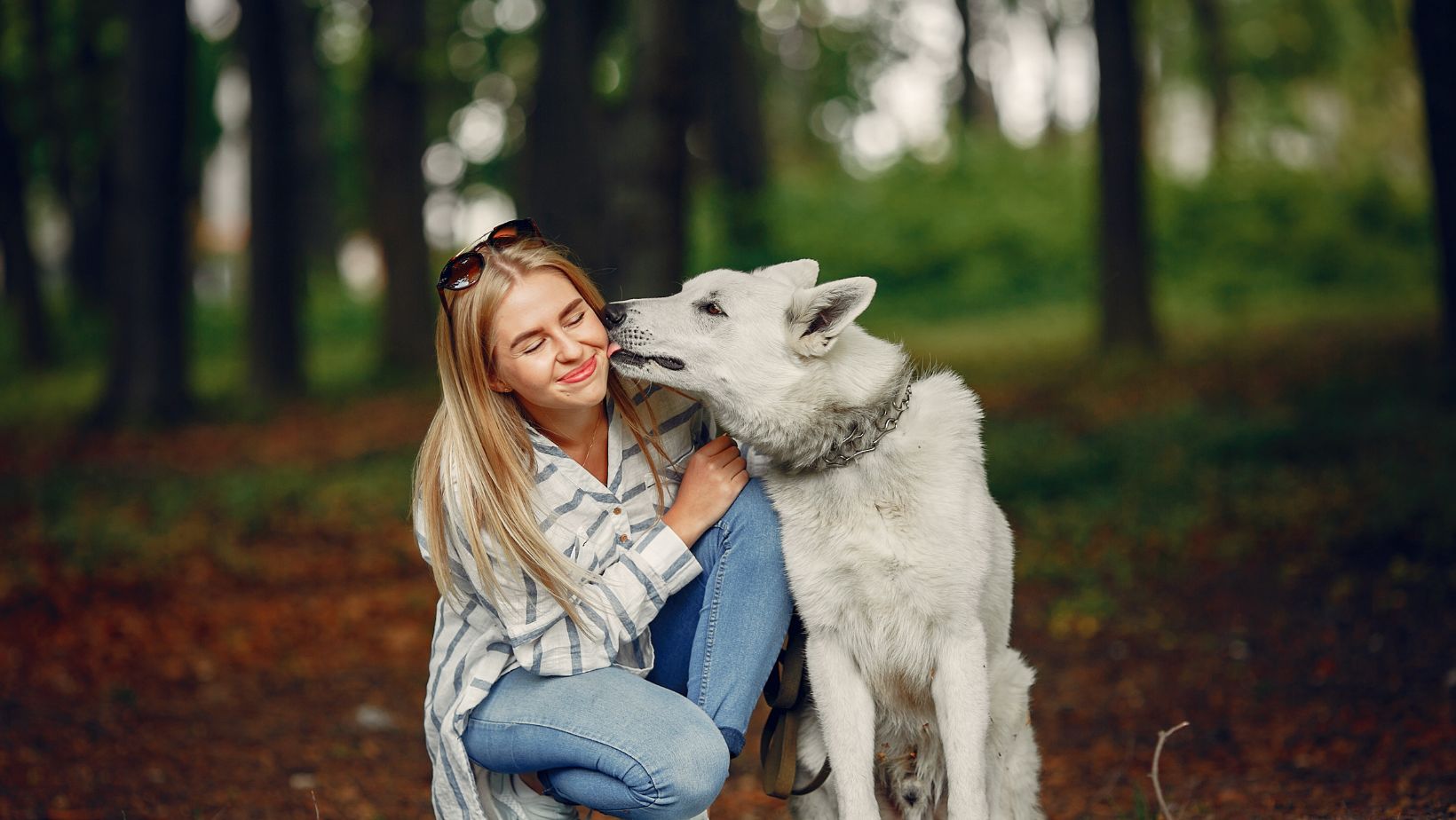Wondering why your furry friend insists on showering you with wet, slobbery kisses? Well, there could be a number of reasons behind this behavior. In fact, dogs licking their owners’ faces is a common occurrence that can stem from various factors such as affection, communication, and even instinctual behavior.
For some dogs, licking their owner’s face is simply an expression of love and affection. Just like humans hug or kiss to show their affection towards each other, dogs use licking as a way to bond and express their adoration for their human companions. It’s their way of saying “I love you” in the language they understand best.
Moreover, licking can also be a form of communication for dogs. They have a highly developed sense of smell, and by licking your face, they are able to gather information about you. The taste and scent of your skin can provide them with valuable insights into your emotions, health condition, or even what you’ve been up to recently.
Why Is My Dog Licking My Face
The Importance of Understanding Dog Behavior
Understanding your dog’s behavior is crucial for building a strong bond and maintaining their overall well-being. One common behavior that many dog owners often wonder about is why their furry friend licks their face. While it may seem like a simple display of affection, there are several reasons behind this behavior.
Common Reasons for Excessive Dog Licking
- Affection and Communication: Dogs use licking as a way to show affection and communicate with their human companions. When they lick your face, it can be seen as a sign of love and trust.
- Taste and Smell: Dogs have an incredible sense of smell, and they may lick your face to taste the remnants of food or other interesting scents. It’s their way of exploring the world around them.
- Grooming Instincts: Puppies learn from their mothers to groom themselves through licking, so when they lick you, it could be an instinctual grooming behavior transferred to humans.
- Attention-Seeking: Some dogs might lick your face as a means to get attention or seek reassurance from you.
- Anxiety or Stress: Excessive licking can also be a sign of anxiety or stress in dogs. If your dog excessively licks your face, accompanied by other signs such as pacing or whining, it’s important to address any underlying issues causing distress.

Understanding the Instinctual Nature of Dogs
The Instinctual Basis of Dog Behavior
As dog owners, we often find ourselves puzzled by our furry friends’ behaviors. One common behavior that many dogs exhibit is licking our faces. To understand why they do this, we need to delve into their instinctual nature.
Dogs have inherited various instincts from their ancestors, including wolves and other canids. Licking is a natural behavior rooted in their genetic makeup. It serves multiple purposes in their social interactions and communication.
Licking is an instinctive action that begins early in a dog’s life. When puppies are born, their mothers lick them to keep them clean and stimulate their bodily functions. This early experience creates a strong association between licking and comfort in dogs.
Understanding the Pack Mentality in Dogs
To comprehend why dogs lick our faces, it’s essential to consider the pack mentality ingrained in them. In the wild, canid packs use grooming rituals as a means of bonding and maintaining social order within the group.
Licking each other’s faces is a way for pack members to reinforce bonds and show submission or respect towards higher-ranking individuals. By licking us, dogs may be trying to establish this same bond with humans or display submissiveness towards us as part of their intrinsic pack mentality.
In conclusion, dogs lick our faces due to their instinctual nature rooted in their genetic makeup and pack mentality. It serves various purposes, including bonding, submission, affection, attention-seeking, and self-soothing. By considering these factors and appreciating the instincts behind this behavior, we can deepen our understanding of our canine companions.